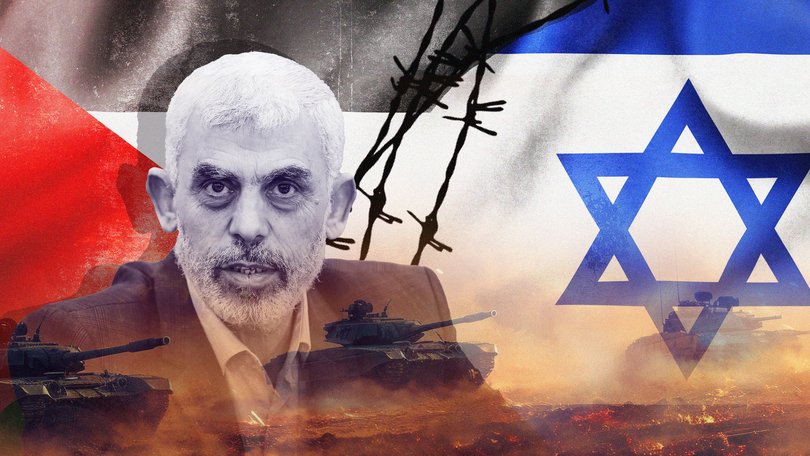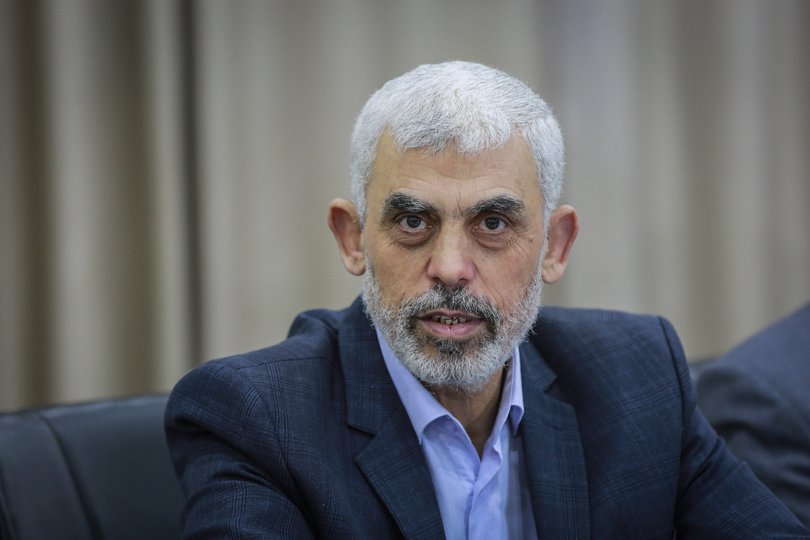ALLON LEE: Will Yahya Sinwar’s death hasten the Gaza war’s conclusion? It’s complicated
ALLON LEE: If the world really wants the fighting to stop, Yahya Sinwar’s death cannot be the catalyst for its end until there is a plan to fully extinguish the flames Iran set ablaze with its ring of fire.

“Yahya Sinwar is dead … While this is not the end of the war in Gaza, it’s the beginning of the end.”
Paraphrasing British wartime leader Winston Churchill’s immortal words from November 1942, this is how Israeli PM Benjamin Netanyahu informed the world that the Israel Defence Forces had eliminated the mastermind of the October 7 massacre.
In repurposing Churchill, Netanyahu was establishing the important point that although a major cog in the terror machine was removed, there is still much work to do.
Sign up to The Nightly's newsletters.
Get the first look at the digital newspaper, curated daily stories and breaking headlines delivered to your inbox.
By continuing you agree to our Terms and Privacy Policy.For Israel, the immediate task now is to free the 101 hostages who are still held captive, somewhere, in Gaza. There is a strong belief that with Sinwar out of the picture, freeing the hostages will be easier to achieve.
But answering the question of whether Sinwar’s death will hasten the war’s conclusion is complicated.
Reportedly, it was the messianic and fanatical Sinwar — Hamas’ leader in Gaza — who took the decision to invade Israel on October 7, without consulting Hamas’ official leadership living far away in the lap of luxury in Qatar.
Even though he was largely incommunicado, hiding out in Gaza, it was Sinwar who replaced Hamas’ overall leader, Ismail Haniyeh, after Israel dramatically assassinated him in Iran’s capital Teheran on July 31.
Who can replace Sinwar is debatable because Israel has succeeded in thinning out Hamas’ senior leadership.
Sinwar’s brother, Mohammed, considered a nasty piece of work, is on Israel’s hit list, while former leader Khaled Meshal has fallen out of favour in recent years.
Many people argue that Hamas’ leadership is irrelevant, and the group cannot be defeated because it is “an idea” and you cannot kill an idea. History shows otherwise — witness the once feared Tamil Tigers, now almost forgotten, or Japanese imperialism.
Although Sinwar’s death is undoubtedly a significant milestone, Netanyahu’s words reflected the reality that Israel has been fighting on six other fronts besides Gaza.
In “solidarity” with Hamas, the Lebanese Hezbollah terror group opened a second front only one day after Hamas’ October 7 massacre by firing rockets into Israel, causing the displacement of 60,000 Israelis in the country’s north.
To date, Hezbollah has launched over 13,000 rockets, missiles, and explosive suicide drones at Israel.
It was Hezbollah’s refusal to accept a US-brokered ceasefire that directly prompted Israel’s astonishing take down in September of 3000 Hezbollah members, using exploding pagers and walkie-talkies, quickly followed by the assassination of its chief, Hassan Nasrallah, in a fortified bunker in Beirut.
Israel then launched a ground invasion on October 1 to eliminate the existential threat posed by Hezbollah’s stockpile of 200,000 rockets and missiles and to create a zone free of militias and their arms in Lebanon’s south, as demanded by UN Security Council Resolution 1701, passed after the last time Hezbollah precipitated a war in 2006.

Israel’s ground incursion revealed that, like Hamas, Hezbollah had also constructed an extensive network of tunnels stocked with materiel to carry out its own version of October 7.
The other fronts arrayed against Israel include the Houthis in Yemen who have targeted Western commercial shipping in the Red Sea, rockets fired by Shi’ite terrorists in Iraq, terrorist groups in Syria, and Palestinian fighters on the West Bank.
Ultimately, all roads lead to Iran.
It is Iran which funds, trains, and arms these groups as part of its “ring of fire” strategy to encircle Israel.
It is important to understand how anomalous the conflict between Iran and Israel is.
They share no borders — 1800km separate the two capitals — and before the 1979 Iranian Revolution, the countries shared cordial diplomatic relations.
But ever since the mullahs hijacked that revolution, a critical ideological goal for the regime — which Hamas and Hezbollah share — has been eliminating the world’s only Jewish state.
Iranian policies to achieve that aim are not, however, limited to its ring of fire.
It is widely accepted that Iran has enough enriched uranium to be able to assemble a nuclear weapon in weeks.
The clear and present danger that Iran could deliver a nuclear weapon to its intended target was evident when it launched hundreds of scud missiles and explosive drones at Israel on April 13 and upped the ante on October 2 by firing 200 ballistic missiles. A few penetrated Israel’s anti-missile defence systems.
World leaders have been pressing Israel to accept a ceasefire with Hamas, despite the reality it is the latter which had refused to do so all year, as US officials now acknowledge.
It is understandable the world wants an end to the death and destruction in Gaza and, as they say, to stop the war escalating into a region-wide conflict.
But the region has been at war for the last 12 months.
If the world really wants the fighting to stop, Sinwar’s death cannot be the catalyst for its end until and unless there is a realistic plan to fully extinguish the flames that Iran set ablaze with its ring of fire.
Allon Lee is a senior policy analyst at the Australia/Israel & Jewish Affairs Council
